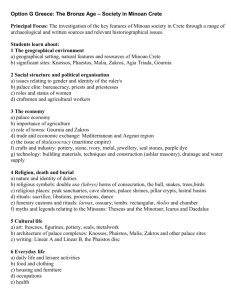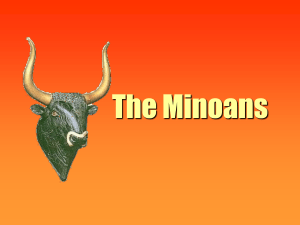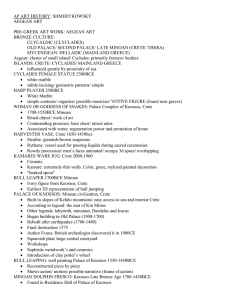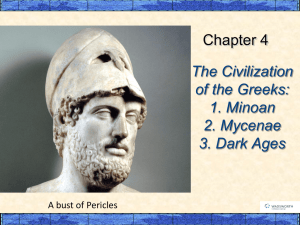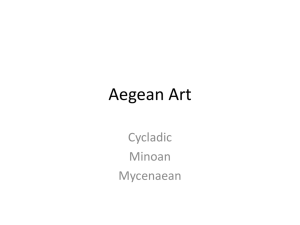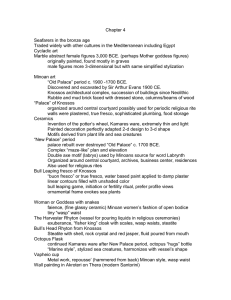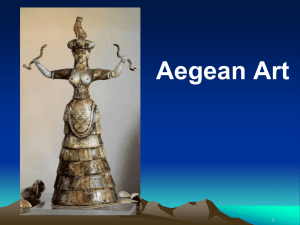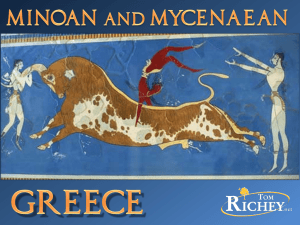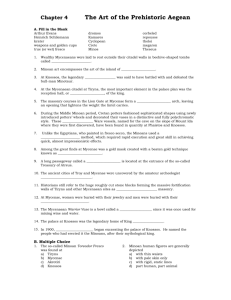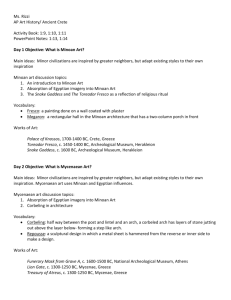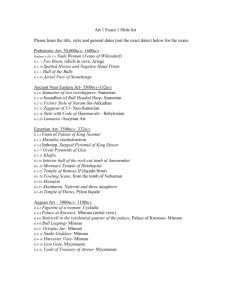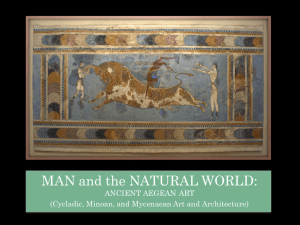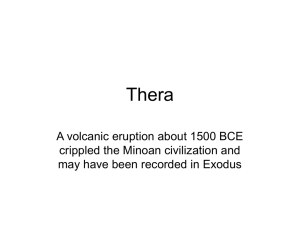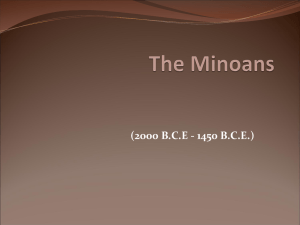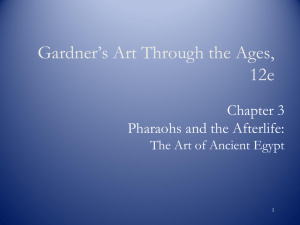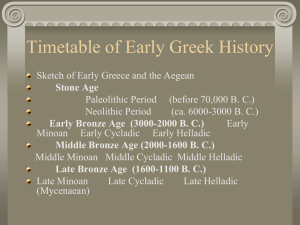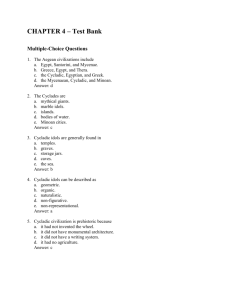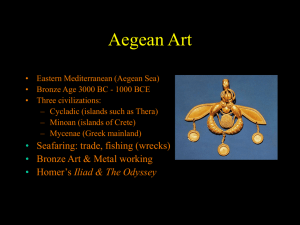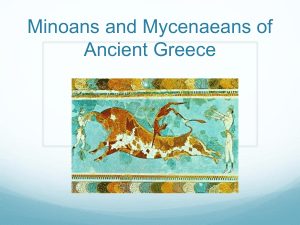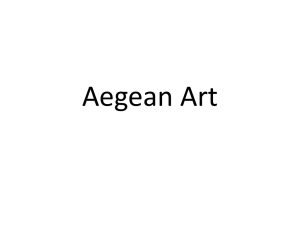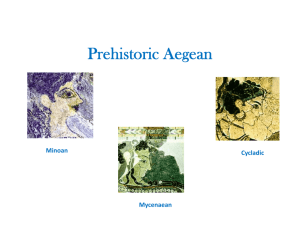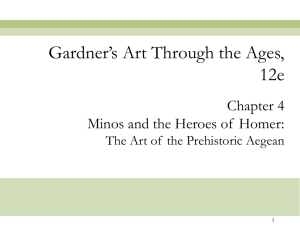Minoan Art and Architecture
advertisement
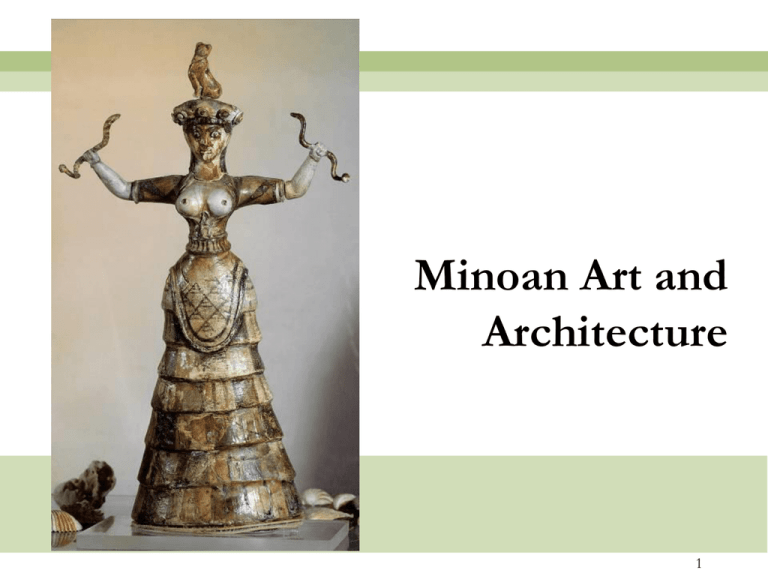
Minoan Art and Architecture 1 • LINEAR B: a very early form of Greek writing imported from the mainland Minoan Periods: 1.Old Palace Period 1900-1700 BCE 2.New Palace Period 1700-1450 BCE Stairwell in the residential quarter of the palace at Knossos (Crete), Greece, ca. 1700–1400 BCE. 10 Figure 4-4 Aerial view (looking northeast) of the palace at Knossos (Crete), Greece, ca. 1700–1400 BCE. 11 Figure 4-5 Plan of the palace at Knossos (Crete), Greece, ca. 1700–1400 BCE. 12 Minoan Architecture • Understand the elements and nature of Minoan palace architecture. • What was the “labyrinth” of the Minotaur and how does the palace at Knossos fit that description? • Describe some of the remarkable achievements of Minoan architecture. 13 The Development of Minoan Sculpture • Describe the materials used in the making of pottery in the Minoan culture. • What is the predominant imagery in the painted images in Minoan pottery? 14 Snake Goddess, from the palace at Knossos (Crete), Greece, ca. 1600 BCE. Faience, 1’ 1 1/2” high. Archaeological Museum, Herakleion. 16 Octopus jar, from Palaikastro (Crete), Greece, ca. 1500 BCE. 11” high. Archaeological Museum, Herakleion. 19 Bull-leaping, from the palace at Knossos (Crete), Greece, ca. 1450–1400 BCE. Fresco, 2’ 8” high, including border. Archaeological Museum, Herakleion. 22 Minoan Wall Painting • What is the subject matter and style seen in Minoan wall paintings? • What materials and methods were typically used? • Compare the fresco in the next slide with Egyptian wall painting. 25 4.3 Mycenaean Culture and Art • Relate significant aspects of archeological excavations at Mycenae. • Understand the link between culture and architecture of Mycenae. • Discuss the relationship between Minoan and Mycenaean art and culture. 27
